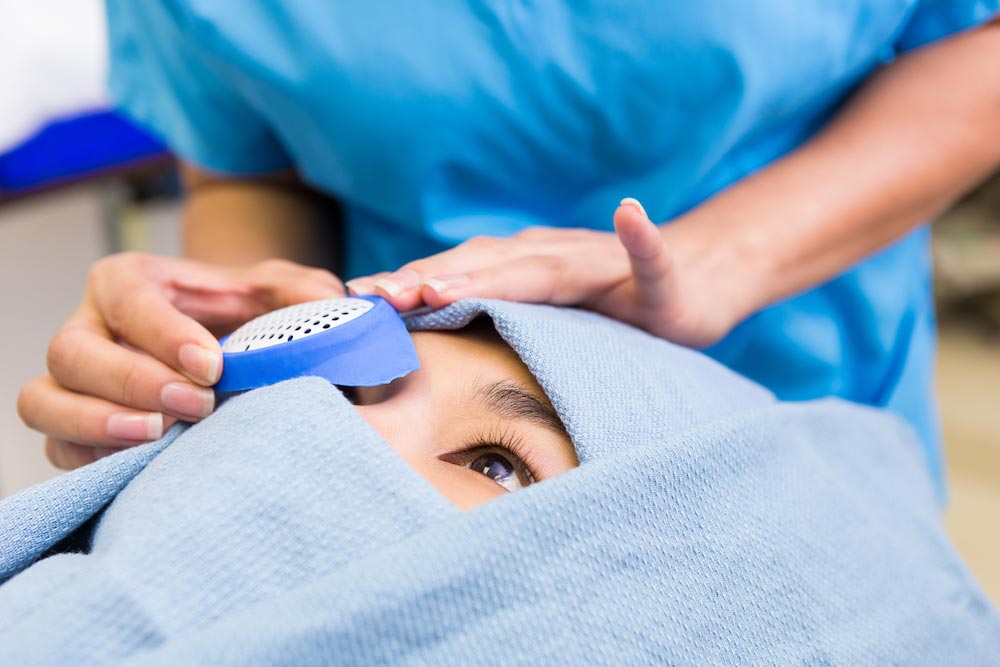Our Focus
Current Indication: Procedural Sedation Prior to Cataract Surgeries
Our lead program, Melt-300, is a fast dissolving, patented sublingual tablet that provides needle- and opioid-free procedural sedation during cataract surgery — a growing field with significant market opportunity. In 2021, 4.6 million cataract surgeries were performed, and that number was expected to grow to 5.2 million by the end of 2022.1,2

Cataract Surgery
A cataract is clouding of the lens of the eye, preventing clear vision and leading to blindness if left untreated.3 Cataract removal is one of the most common, safest, and effective surgeries performed in the United States.4 With surgery times of less than one hour and exceptional results, cataract surgery is considered one of the most successful treatments in all of medicine.5 Progressing to sublingual sedation may be the next step in safety and comfort for a growing patient demographic.6
Benefits of Melt-300 for Cataract Surgery
- Eliminate the need for IV delivered sedation in the vast majority of patients.
- Eliminates pain and bruising for patient (needle stick is often the most painful and anxiety inducing part of the procedure.)
- Opioid-free. According to 2021 published data, a group from Duke University performed a two-year single-center retrospective study of over 2,000 patients (making up over 3,000 cases) undergoing routine cataract surgery and found that approximately 97% of the cases received at least one dose of the opioid fentanyl.7
- Potential for a more efficient operational flow through decreased preparation time for each patient.6

Potential to eliminate the need for IV
What People Are Saying
“Cataract surgery has advanced over the last two decades, but our approaches to ocular anesthesia haven’t… I am excited to see innovation in this field as we try to create more patient-friendly solutions that can be needle- and opioid-free.”
Maggie Jeffries, MD, board certified anesthesiologist (Houston)
References
- Market Scope. US Cataract Quarterly Update: Q3 – 2019 Analysis of Historical Trends and Latest Developments.; 2019:1-37.
- Market Scope. Cataract Quarterly Update: Q3 – 2018.; 2018:1-38.
- WHO | Priority eye diseases. WHO. http://www.who.int/blindness/causes/priority/en/. Accessed July 28, 2019.
- Facts About Cataract | National Eye Institute. https://nei.nih.gov/health/cataract/cataract_facts. Accessed July 28, 2019.
- Davis G. The Evolution of Cataract Surgery. Mo Med. 2016;113(1):58-62.
- William F. Wiley MD. IV-free sedation may help anxious cataract patients. Ophthalmology Times. https://www.ophthalmologytimes.com/ article/iv-free-sedation-may-help-anxious-cataract-patients. Published July 15, 2016. Accessed July 28, 2019.
- Davidson, Donaldson, et al., Persistent Opioid Use in Cataract Surgery Pain Management and the Role of Non-Opioid Alternatives, https://read.qxmd.com/read/34753878/persistent-opioid-use-in-cataract-surgery-pain-management-and-the-role-of-non-opioid-alternatives (2021)
